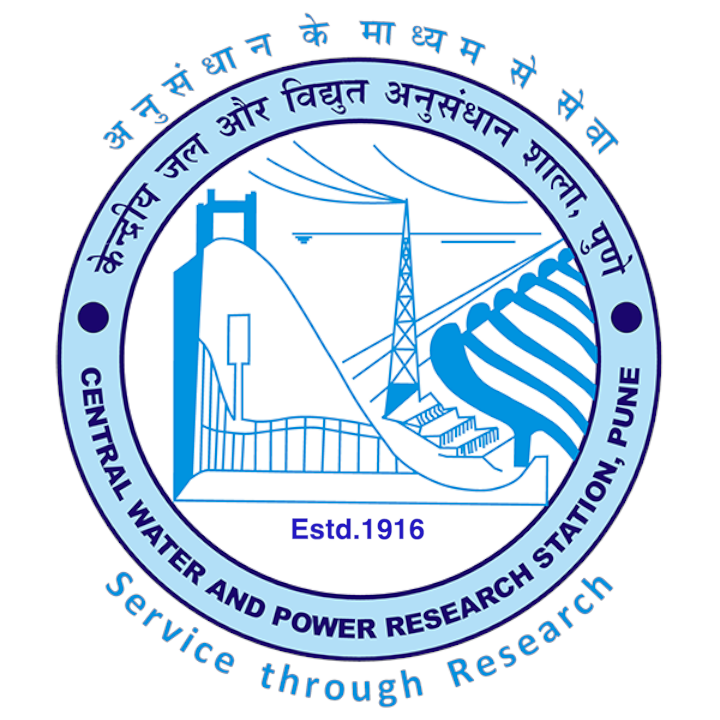About Us
The Central Water and Power Research Station (CWPRS), Pune, established in 1916 by the then Bombay Presidency as a Special Irrigation District, today, is the leading national hydraulic research institute under the Ministry of Jal Shakti, Department of Water Resources, River Development and Ganga Rejuvenation (MoJS, DoWR, RD&GR), New Delhi. In its early days of formation, this institute played an important role by conducting outstanding research work for the Sukkur Barrage in Sind, the largest irrigation project in the world (1927 to 1932). With the dawn of independence, and launching of planned development of water resources of the nation, CWPRS became the principal central agency to cater to the research and development (R&D) needs of hydraulics and allied disciplines for evolving safe and economical designs of hydraulic structures involved in water resources projects, river engineering, power generation and coastal engineering projects.
The research activities at CWPRS can be grouped into seven major disciplines:
- River Engineering
- River and Reservoir Systems Modelling
- Reservoir and Appurtenant Structures
- Coastal and Offshore Engineering
- Foundation and Structures
- Applied Earth Sciences
- Instrumentation, Calibration and Testing Services
Advisory services are offered to the government within the sphere of its activities by participation in various expert committees. The solutions offered by CWPRS are based on the investigations from physical and mathematical models, field investigations coupled with desk studies or from a combination of these. The institution also carries out collection and analysis of field/ prototype data on a variety of engineering, hydraulic and environmental parameters. Disseminating the research findings amongst hydraulic research fraternity, and promoting research activities at other institutions by imparting training to their research manpower, are also undertaken.
The mandate of the institution encompasses undertaking specific research studies supported by necessary basic research. Comprehensive R&D support is offered to a variety of projects in fields as diverse as river training and bank protection measures, hydraulic design of bridges and barrages, flood forecasting, dam break analysis, water quality analysis of river and reservoir systems, design of spillways and energy dissipaters, analysis of water conductor and tail race system, optimization of the design and layout of ports and harbours suggesting coastal protection measures based on locally available materials, investigations for foundations of hydraulic structures, analysis of structures subjected to various static and dynamic loads, applied earth sciences studies for the sites of hydro-electric and other projects, calibration of current meters and flow meters, testing of pumps and turbines and instrumentation for dams.
CWPRS campus, situated downstream of Khadakwasla dam in South Westerly part of Pune, occupies an area of about 450 acres, where major research infrastructure available includes water recirculation system for physical models, workshop, library, computers and communication facilities, auditorium and housing facilities. CWPRS has been recognized as the regional laboratory of the Economic and Social Commission for Asia and the Pacific (ESCAP) since 1971. The institution, with multi-disciplinary approach in its activities, thus represents unique services available to the country and the ESCAP region. CWPRS is an ISO 9001:2015 certified organisation.

© Copyright © 2024 - Content owned by Central Water and Power Research Station (CWPRS), Developed, hosted, and maintained by ADG Online Solutions Pvt. Ltd.










